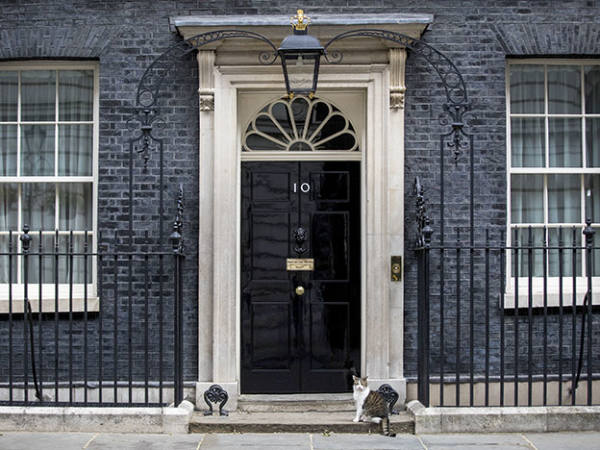When Covid-19 hit, there was a run of force majeure declarations in the oil and gas world. These ranged in scope from the Chinese state-owned gas company CNOOC refusing to take LNG deliveries in February to Bahamas Petroleum (BPC), an Aim-traded explorer pausing its well drilling in the Caribbean.
Then came the oil price crash and the industry became much more concerned about simply surviving in a sub-$30-per-barrel environment than some project or gas delivery delays. Since then, oil and gas companies have frozen projects and stripped back capital spending while the majors have ramped up their green plans and cut dividends.
But the spending cuts on top of the new operating environment mean cash flow for many companies will be delayed. This could be a good thing for some operators, pushing sales back to when the oil price has recovered somewhat or offering a chance to redesign existing plans.
Jadestone Energy (JSE) has taken the former approach on delaying workovers, which mean shutting off production from wells. “The company’s decision to delay three well workovers at the Stag field...has had the benefit of reducing personnel required offshore during Covid-19 imposed restrictions, and also ensures future flush production from newly worked-over wells is timed to coincide with a higher oil price environment, thereby maximising investment returns,” the company said.
Jadestone has cut its 2020 capital spending by 80 per cent.
Poor service
But the delays could turn into more. This is keenly felt by the engineering, procurement and construction (EPC) sector, where new jobs have slowed down and existing projects have been cancelled.
In its half-year results, Wood Group (WG.) saw its upstream order book drop significantly in the first half. Chief executive Robin Watson said the company had worked extremely hard to reduce Wood’s reliance on the cyclical upstream oil and gas industry, saying 65 per cent of the business had shown “relative resilience” during the pandemic. Wood gets 65 per cent of its revenue from non-upstream sources.
Other services firms have had similar experiences, with Hunting (HTG) worse off because of its greater US onshore exposure and Petrofac (PFC) hit by a cancellation of a major gas project in Abu Dhabi in the first half. Gas prices were hit by Covid-19 but nowhere near as badly as oil.
Consultancy Rystad Energy said uncertainty around project development would stick with companies for some time. “The Covid-19 inflicted uncertainty means that service companies, operators and investors will continue to watch their budgets and stay clear of any non-profitable or high-risk projects in the months and years ahead,” said Rystad vice president of energy service research Matthew Fitzsimmons.
Rystad forecasts higher costs for even deepwater projects after next year, coupled with flat oil prices, taking the shine off assets not yet at the final investment decision stage.
Premier Oil (PMO) has paused the Sea Lion development in the Falklands because of the weak conditions. “Given both the macro environment and the need to get that balance sheet back in shape, the project is on hold to a certain extent,” Premier finance director Richard Rose told Investors Chronicle this month. Sea Lion, which has a reserve of 250m barrels, is no white elephant, but long-term oil price forecasts will force rethinks on many projects.
Wood Mackenzie expects oil to recover to $86 a barrel by 2030, but only if there is not another large-scale lockdown. That would be enough to lengthen the recession and knock the forecasted 2030 price down to $70 a barrel.
Senior moments
As well as pausing their own-operated projects, the mid-caps are also looking at delays to projects where they are the junior partner.
Serica Energy (SQZ) is waiting on Royal Dutch Shell (RDSB) to finish its Arran pipeline to get the Columbus gas deposit into production. This is part of the major Shearwater offshore project. Columbus was initially set to reach first gas by the March quarter next year, but this has now been pushed back six months, after Shell’s decision in April.
Fellow London midcap Kosmos Energy (KOS) saw BP (BP.) add a year to the Greater Tortue Ahmeyim completion estimate because of a Covid-19-related delay to the breakwater construction. Kosmos is selling down its stake, but will still hold a 10 per cent share of the massive project. The company has upped a prepayment arrangement with Trafigura, adding $50m to this year’s earnings in exchange for future production.
Looking at the crisis many in oil and gas are facing, delays are far more surmountable than a long-term oil price below a project’s breakeven. But they can still cause problems. Energean Oil and Gas (ENOG) has had to contend with the key piece of infrastructure for its Karish project in Israel getting stuck because of Covid-19 restrictions.
Energean Power is a floating production storage and offloading (FPSO) ship that in April made it from China to Singapore months behind schedule, after shipbuilder TechnipFMC declared force majeure in February. In June, the fitout restarted but the shipyard in Singapore had to get permission from the authorities to bring in over 500 workers to complete the project.
These inconveniences add up, although Energean says the delay has not had a material impact on the project. This could change if production is pushed back further – a possibility if Wood Mackenzie’s second wave scenario happens – but the developer should have the Edison assets for cash flow by then.











